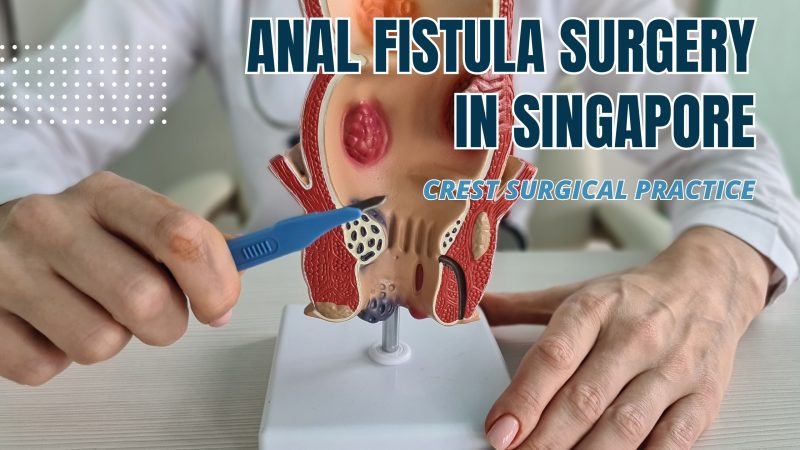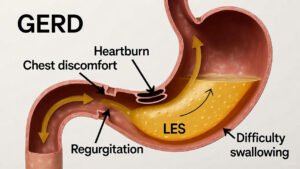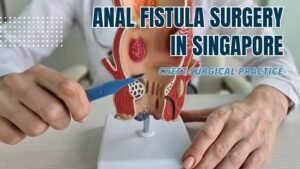Anorectal infections are more common than you think. Unfortunately, they are also one of the most overlooked medical conditions – mainly because of embarrassment, fear of seeking help, or hoping the symptoms will go away on their own. However, waiting can lead to serious complications. Abscesses or fistulas are not self-resolving, and in most cases, anal fistula surgery in Singapore is vital to manage the problem. Let’s talk about why anorectal infections require immediate action, the dangers of not treating them, and why early medical intervention can prevent long-term complications.
What Are Anorectal Infections?
These infections occur in the perianal tissues, resulting in minor obstruction in the anal glands. An enlarged gland can cause pain and become inflamed with pus that is difficult to tolerate. When not treated in time, an anorectal abscess turns into an anal fistula causing more complexity.
While some minor infections can get healed with medication (antibiotics) and hygiene alone, abscesses and fistulas may require treatment. If these conditions don’t get treated, they can cause lingering pain and create more serious health issues.
Common Symptoms to Look for
Identifying the signs of an anorectal infection is the initial step towards recovery. Let’s explore the symptoms to understand and identify the infection when required:
•Swelling or redness around the anus
•Throbbing pain, primarily during sitting or when having a bowel movement
•Discharge of pus or blood
•Irritation or tenderness of the skin around the anus
•Fever or chills in severe instances
If left untreated, an illness that starts small can get worse.
Risks of Not Treating an Abscess
There is more to an anal abscess than just a painful swelling. It serves as an illustration of an infection that can quickly spread when not addressed at the right time. Some elements that might not be readily apparent are as follows:
•Increased infection: The bacteria within the abscess can migrate to tissues close to it or even into the blood in extreme cases.
•Causes tissue damage: When dealing with a continued infection that does not get treated at the correct time, it causes damage to the surrounding tissues, worsening things.
• Fistula formation: If the abscess ruptures or is not completely drained, it can create a fistula—a more complicated condition that tends to require surgery.
Even though abscesses can occasionally be drained with a straightforward technique, the resulting fistula usually necessitates more sophisticated care, such as anal fistula surgery in Singapore.
Understanding Anal Fistulas
It connects an infected gland in the anus to an adjacent skin opening. These passages keep occurring due to an untreated or recurring abscess. Once created, a fistula never heals or closes spontaneously. It might discharge pus or blood into it continually or remain in pain, predisposing the patient to further infection.
Thus, fistulas are uncomfortable and a clear indication that the body has not been able to repair the infection. Fistulas will flare on most occasions, affecting patients’ ability to sit, walk, or live comfortably regularly.
Complications of Untreated Fistulas
Failing to address a fistula can lead to a range of complications, including:
•Chronic infection: Can present recurrent infections characterized by swelling, pain, and recurrent pus discharge.
•Recurrence of abscess: In most cases, the fistula poses a risk for reoccurrence, even if you get the previous one removed successfully.
•Complex fistula: Fistula may grow in complexity: multiple tunnels are created, which are harder to treat.
•Impacting the anal muscles: Untreated fistula (for long duration) can result in muscle tissue damage (around the affected area) and result in impaired bowel control.
• Experience leading a low-quality life: The hygiene issues, severe pain, and discomfort can hamper the indulging in daily activities.
Never wait, hoping that the fistula will resolve without intervention, as it can create more complications and ruin your peace of mind and comfort.
When You Need Surgery
If the disease fails conservative treatment (antibiotics, sitz-bath, hygiene problems), surgery might follow. For a complex and/or recurrent fistula, anal fistula surgery in Singapore is a safe means of closing the fistula, draining the infectious process, and facilitating healing in the affected area.
What are the surgical options to manage the fistulas?
• Fistulotomy: This technique involves disassembling the fistula to promote healing from the interior outward. For simple fistulas.
• Seton placement: A thread is inserted during surgery to keep the fistula open and draining, commonly used in complex fistulas.
• LIFT procedure: Sealing the internal opening of the fistula without cutting through muscle.
• Advancement Flap: The procedure is a muscle-preserving treatment in high-risk situations, such as fistulas coursing through a significant segment of the sphincter.
Your colorectal surgeon in Singapore can guide you to the right one, depending on your unique situation.
What To Expect During Recovery
Recovery after a fistula surgery takes several weeks, depending on the nature of the case. Most individuals experience some pain for a few days after surgery, which gets alleviated through pain medications and subsequent good care.
Key steps while undergoing recovery include:
•Keeping the area clean and dry
•Sitz baths for alleviating discomfort
•Following a diet that will not cause constipation
•Follow-up visits to assess the healing process
Most patients can experience relief, less recurrence, and a more comfortable daytime life.
Conclusion
Ignoring the warning signs of anorectal infections, such as abscesses and fistulas, can lead to chronic pain, recurring infections, and long-term problems. Never think that the symptoms will heal without any involvement. The reality is these things require medical treatment. If conservative measures fail in the treatment of anal fistulas, surgical treatment can provide you with relief and allow you to get quality back into your life here in Singapore.
If you have been suffering from anal pain, swelling, or discharge that has been persisting for some time, there is no reason to delay seeking assistance. Getting a prompt diagnosis and treatment is your correct option to prevent complications.
At Crest Surgical Practice, we diagnose and treat anorectal problems with a patient-centred approach. Let our experienced team at Crest Surgical Practice care for you from consultation to recovery. Consider booking an appointment with us today to learn more about Anal fistula surgery in Singapore and take the first step toward lasting relief.







